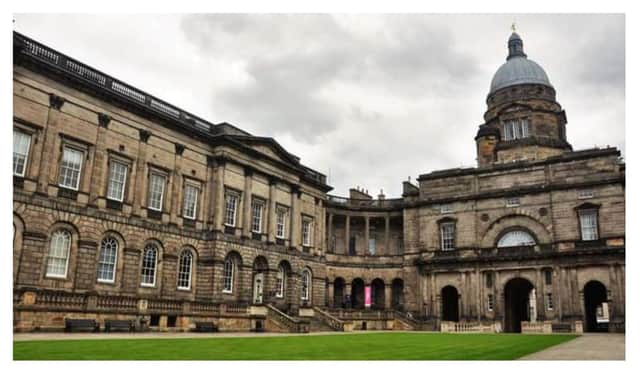At-risk academics offered refuge in Edinburgh through scheme without borders


The University of Edinburgh is working in partnership with the Council for At-Risk Academics (Cara) to offer ten fully-funded fellowships, providing sanctuary for the scholars and their families for two years.
This commitment to fund a further ten fellows is, to date, the most generous support of any UK university working with the UK-based charity.
The funding will be open to academics across the world who are at risk in conflict-affected areas and fragile states.
It is hoped that the ten fellows will begin arriving in Edinburgh from late 2022, or when a suitable academic placement is found.
The newly-announced package of support builds on the University of Edinburgh’s existing partnership with Cara.
As part of this ongoing commitment, two new fellows and their families from Yemen and Afghanistan were welcomed to Edinburgh this spring.
Cara was established in 1933 in response to Hitler’s decision to persecute and expel hundreds of scholars from German universities on racial grounds.
Today, it remains the UK’s lead organisation in supporting temporary sanctuary for academics who have been forced into exile or are at risk due to persecution, violence or conflict.
Stephen Wordsworth, Executive Director of Cara, said: “Cara is enormously grateful to the University of Edinburgh for its decision to provide funding for ten further two-year placements, without any geographical restrictions.
“While we are all doing all we can to help Ukrainian academics, there are still many others in danger who need and deserve support, in Afghanistan, the Middle East and elsewhere.
“This generous sector-leading offer – the largest from any one UK university, and in addition to Edinburgh’s existing support for our work – will make it possible to get more of them to a place where they can continue their study and research and their families can be safe, until they can return home.”
The University of Edinburgh has an extended history of providing a place of sanctuary and education for those seeking protection.
It was a founding member of Cara, in addition to being Scotland’s first accredited University of Sanctuary.
Notable alumni who have found sanctuary at the institution include Nobel Prize-winning German physicist Max Born, who became Tait Professor of Natural Philosophy in 1936.
Professor Peter Mathieson, Principal and Vice-Chancellor of the University of Edinburgh, said: “As a University of Sanctuary, we are deeply committed to providing a welcoming place of safety for colleagues and students.
“I have been very proud of the way our University community has mobilised to support those affected by the war in Ukraine.
“This new pledge builds on this important work, and our partnership with Cara, to provide sanctuary for colleagues who find themselves in dangerous situations across the world.”